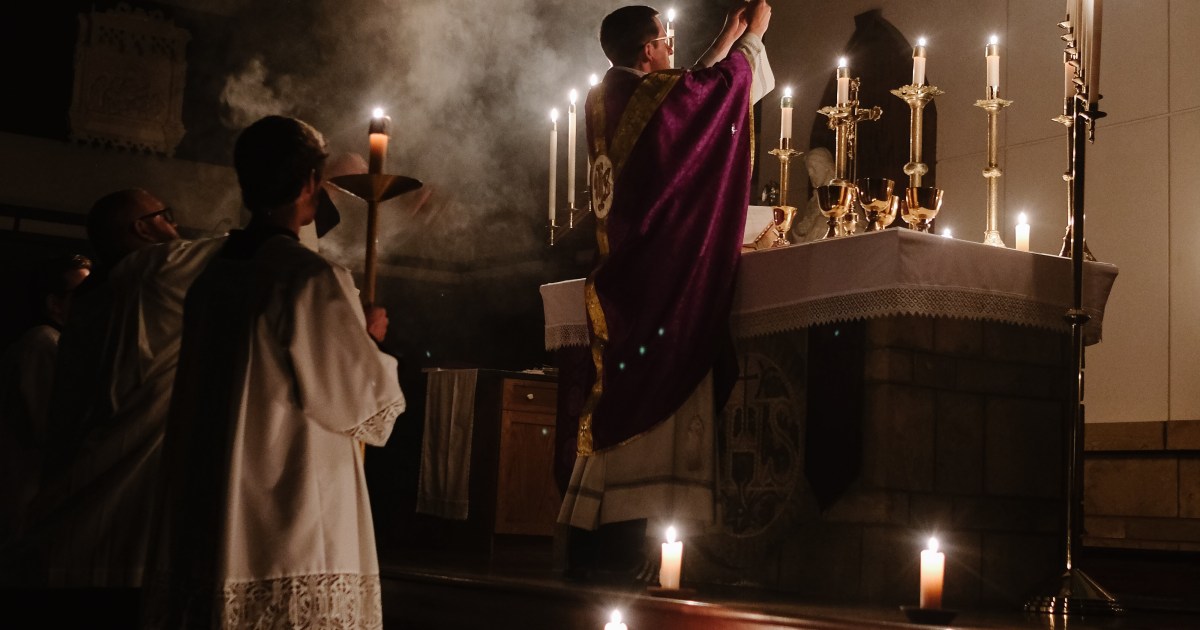The Catholic practice of venerating saints grew out of the worship of pagan gods, what can only be called demon spirits, and the worship of the dead as we see with dead ancestors. We see the Pope doing this in the open, and yet Christians stay silent. The burning incense during worship comes from ancient Greek, Roman, and Egyptian temples burning fragrant incense to please the gods with the smoke seen as purifying. Some think Easter celebrates Jesus’ resurrection and rebirth, but take a look at the Easter symbols like rabbits and eggs which were from the pagan belief of fertility, and worship of the solar solstice and spring. The use of relics, or worship at shrines containing saints’ relics in hopes of being blessed, healed, or rewarded by the Gods is from the pagans worship of revered objects associated with their gods. It just goes on and on, to say nothing of worship of the 'Queen of Heaven', which comes of pagan goddess worship. The Easter “buns” were used in the worship of the 'Queen of Heaven' and is documented in history and the Bible. As early as the days of Cecrops, the founder of Athens, way before the Roman Empire and we see the prophet Jeremiah take notice of this pagan worship,
Jeremiah 7:18
The children gather wood, and the fathers kindle the fire, and the women knead their dough, to make cakes to the queen of heaven, and to pour out drink offerings unto other gods, that they may provoke me to anger.
Jeremiah 44:19
And when we burned incense to the queen of heaven, and poured out drink offerings unto her, did we make her cakes to worship her, and pour out drink offerings unto her, without our men?
Jeremiah 44:25
24 Moreover Jeremiah said unto all the people, and to all the women, Hear the word of the Lord, all Judah that are in the land of Egypt:
25 ;Thus saith the Lord of hosts, the God of Israel, saying; Ye and your wives have both spoken with your mouths, and fulfilled with your hand, saying, We will surely perform our vows that we have vowed, to burn incense to the queen of heaven, and to pour out drink offerings unto her: ye will surely accomplish your vows, and surely perform your vows.
26 Therefore hear ye the word of the Lord, all Judah that dwell in the land of Egypt; Behold, I have sworn by my great name, saith the Lord, that my name shall no more be named in the mouth of any man of Judah in all the land of Egypt, saying, The Lord God liveth.
 www.answerthebible.com
www.answerthebible.com

 bigthink.com
bigthink.com
Jeremiah 7:18
The children gather wood, and the fathers kindle the fire, and the women knead their dough, to make cakes to the queen of heaven, and to pour out drink offerings unto other gods, that they may provoke me to anger.
Jeremiah 44:19
And when we burned incense to the queen of heaven, and poured out drink offerings unto her, did we make her cakes to worship her, and pour out drink offerings unto her, without our men?
Jeremiah 44:25
24 Moreover Jeremiah said unto all the people, and to all the women, Hear the word of the Lord, all Judah that are in the land of Egypt:
25 ;Thus saith the Lord of hosts, the God of Israel, saying; Ye and your wives have both spoken with your mouths, and fulfilled with your hand, saying, We will surely perform our vows that we have vowed, to burn incense to the queen of heaven, and to pour out drink offerings unto her: ye will surely accomplish your vows, and surely perform your vows.
26 Therefore hear ye the word of the Lord, all Judah that dwell in the land of Egypt; Behold, I have sworn by my great name, saith the Lord, that my name shall no more be named in the mouth of any man of Judah in all the land of Egypt, saying, The Lord God liveth.
Who is the Queen of Heaven? - Answer The Bible
The term "Queen of Heaven" appears only twice in the Bible, both times in the book of Jeremiah. The context shows that this refers to a pagan goddess named
 www.answerthebible.com
www.answerthebible.com

The pagan origins of three Catholic practices
A few traditions in the Roman Catholic Church can be traced back to pagan cults, rites, and deities.


